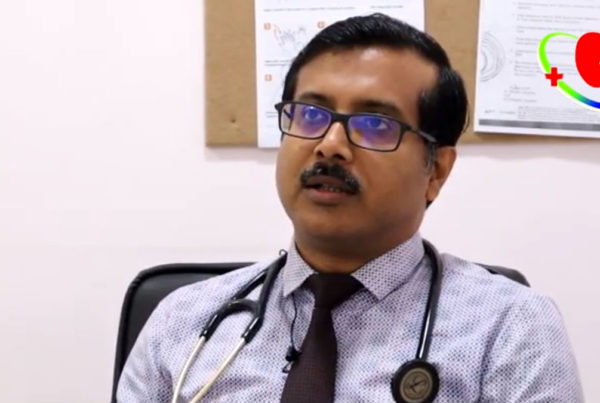 Consider the familiar visuals of slogan shouting crowd at the capital or the episodic sniper attacks at the border; the labile roller-coaster stock market at the Dalal street or the stagnant Yamuna overcast by the polluted Delhi air; the ‘compulsive’ scroll of breaking news on the television channels, do just one thing – releasing a heavy burst of adrenaline; resulting in our heart beating faster and our blood pressure (BP) shooting up. In today’s connected world, you don’t even need to reach home and land on your favourite sofa and switch on the TV; your smartphone is good enough to supply that intermittent dose of addictive adrenaline, way too much than your system is designed to handle. Add to this, the problem of those extra amount of salt in your fast food, lack of time for exercise, smoking and diabetes; and all of us would agree that there is a reason why more than 970 million people today (roughly 26% of the adult world population) has hypertension.
Consider the familiar visuals of slogan shouting crowd at the capital or the episodic sniper attacks at the border; the labile roller-coaster stock market at the Dalal street or the stagnant Yamuna overcast by the polluted Delhi air; the ‘compulsive’ scroll of breaking news on the television channels, do just one thing – releasing a heavy burst of adrenaline; resulting in our heart beating faster and our blood pressure (BP) shooting up. In today’s connected world, you don’t even need to reach home and land on your favourite sofa and switch on the TV; your smartphone is good enough to supply that intermittent dose of addictive adrenaline, way too much than your system is designed to handle. Add to this, the problem of those extra amount of salt in your fast food, lack of time for exercise, smoking and diabetes; and all of us would agree that there is a reason why more than 970 million people today (roughly 26% of the adult world population) has hypertension.
The good news is that a simple BP instrument, a health worker and 5 minutes of your time, is all that we need to screen you for high blood pressure; the bad news, we refuse to do it; only one fifth of all hypertensive patients in India are detected, and a much smaller fraction treated. Unlike what most people think, the ravages of high blood pressure is seen in every segment of health care; from the busy ER where patients come with stroke and heart attack, to the sedate labour room, where pregnant ladies present with eclampsia (a pregnancy related complication of high blood pressure); from ophthalmology, with visual dimness; to nephrology with Kidney failure. The main problem of hypertension is that, it has no symptoms; till a catastrophic disease like stroke or heart attack takes place
And then came COVID 19
COVID pandemic is a new challenge; something akin to the meteor hit that decimated the mighty dinosaurs. It is even more stressful because the faith and confidence of general public on the health care system, even in advanced western countries, suddenly looked shaken. With no curative medicine in sight, vaccine still in research phase, closeted inside our 6X6 bedrooms all that we can do is to google for info on COVID.
Being a global crisis, all medical associations and journals are updating their thought and concepts online for use by researchers; this helps researchers no doubt, but the volume of contradictory data could create a problem in peoples psyche; and that’s what exactly happened.
COVID virus attaches to the cells lining the lung tissue by a receptor system called ACE2 (Angiotensin Convertase Enzyme 2); these are ubiquitous receptors that do a lot of different function in the body including maintain and fine tune blood pressure by controlling state of blood vessel contraction, blood volume and body sodium.
A major group of anti-hypertensive drugs, angiotensin convertase inhibitors (ACEI) and angiotensin receptor blockers (ARBs) act through the complex ACE system. So the first reflex thought was that, such drugs might make a person more vulnerable to COVID. A few journals discussed about this citing the physiological pathway. As predictably as ever, social media took it up in a big way creating confusion.
With upto 35 percent of people taking anti hypertensive drugs containing ACEI or ARB, singly or in combination with other drugs, our telephones started ringing. That seems ok, but a much larger population simply stopped medicines.
Five prominent societies including European Society of Hypertension (ESH); European Society of Cardiology Council of Hypertension, Hypertension Canada, Canadian Cardiovascular Society and the Renal Association UK have independently announced that there is no data to withhold these important medicines for patients of hypertension in the background of emergence of COVID.
So in case you are on such a drug ACEI -name ending with -pril (enalapril, lisinopril, ramipril, perindopril) or ARB – name ending with -sartans (losartan, telmisartan, valsartan, olmesartan), don’t panic or stop it, do continue to take it.
For those millions of people of hypertension, controlled on these medicines, stopping BP drugs on unfounded fear might create a far more dangerous situation than COVID itself.









